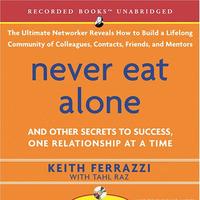15. CHAPTER 3 Step One: Find Your Passion
Step One: Finding Your Passion
The best definition of a "goal" I've ever heard came from an extraordinarily successful saleswoman I met at a conference who told me, "A goal is a dream with a deadline.
That marvelous definition drives home a very important point. Before you start writing down your goals, you'd better know what your dream is. Otherwise, you might find yourself headed for a destination you never wanted to get to in the first place. Studies indicate that well over 50 percent of Americans are unhappy at work.
Many of these people are doing well, but they are doing well at something they don't enjoy. How we got ourselves into such a situation isn't difficult to understand. People get overwhelmed by the decisions they have to make about their jobs, their families, their businesses, their futures. There are too many choices, it seems. We end up shifting our focus to talents we don't have and careers that don't quite fit. Many of us respond by simply falling into whatever comes down the pike without ever asking ourselves some very important questions. Have you ever sat down and thought seriously about what you truly love?
What you're good at? What you want to accomplish in life? What are the obstacles that are stopping you? Most people don't. They accept what they "should" be doing, rather than take the time to figure out what they want to be doing. We all have our own loves, insecurities, strengths, weaknesses, and unique capabilities.
And we have to take those into account in figuring out where our talents and desires intersect. That intersection is what I call your "blue flame"—where passion and ability come together. When that blue flame is ignited within a person, it is a powerful force in getting you where you want to go. I think of the blue flame as a convergence of mission and passion founded on a realistic self-assessment of your abilities.
It helps determine your life's purpose, from taking care of the elderly to becoming a mother, from being a top engineer to becoming a writer or a musician. I believe everyone has a distinct mission inside of him or her, one that has the capacity to inspire. Joseph Campbell, who coined the phrase "follow your bliss" in the early 1900s, was a graduate student at Columbia University.
His blue flame, he decided, was the study of Greek mythology. When he was told there was no such major, he devised his own plan. After graduation, he moved into a cabin in Woodstock, New York, where he did nothing but read from nine in the morning until six or seven each night for five years.
There isn't exactly a career track for lovers of Greek myth. Campbell emerged from the woods a very, very knowledgeable man, but he still had no clue what to do with his life. He persisted in following his love of mythology anyway. The people who met him during this time were astonished by his wisdom and passion.
Eventually, he was invited to speak at Sarah Lawrence College. One lecture led to another, until finally, when Campbell looked up one day twenty-eight years later, he was a famous author and professor of mythology, doing what he loved, at the same school that had given him his first break. "If you follow your bliss, you put yourself on a kind of track that has been there all the while, waiting for you, and the life that you ought to be living is the one you are living. So how do you figure out your bliss?
Campbell believed that deep within each person, there's an intuitive knowledge of what she or he wants most in life.
We only have to look for it. Well, I agree with Dr. Campbell.
All good decisions, I'm convinced, come from good information. Deciding on your passion, your bliss, your blue flame is no different. There are two aspects to getting good information. One part comes from within you; the other part comes from those around you.

